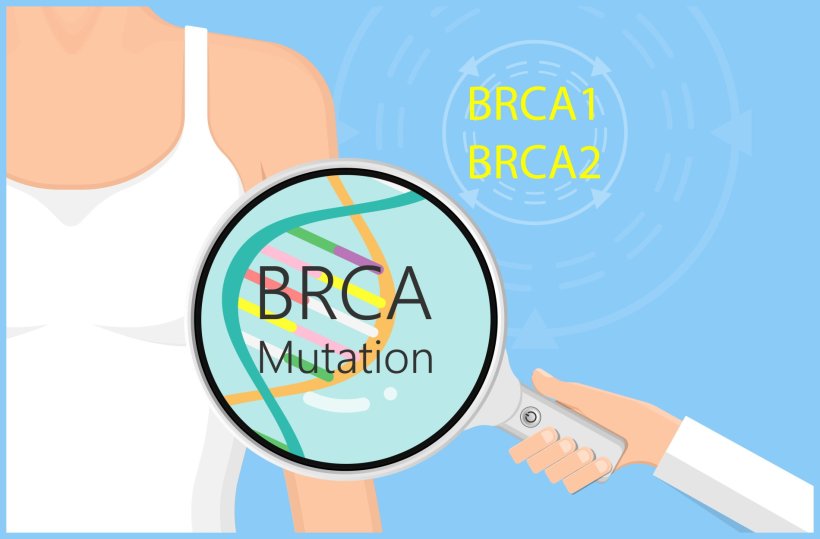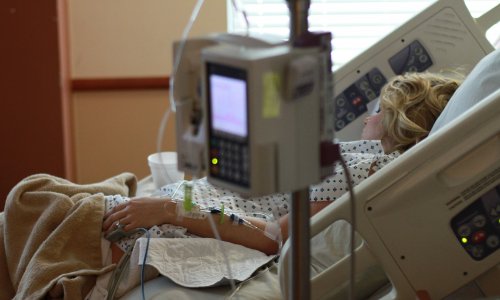
Image source: Adobe Stock/Pepermpron
News • BRCA mutation vs family history
Breast cancer: Genetic test may make women misjudge their risk
Women could be opting to have unnecessary surgery to avoid breast cancer, after being told they are at high risk from genetic test results which do not take family history into account.
The authors of new research led by the University of Exeter have warned that women who discover, outside of a clinical setting, that they carry a disease-causing variant in one of the BRCA genes (BRCA1 or BRCA2) may be told their risk of breast cancer is 60-80%. In fact, the risk could be less than 20% if they do not have a close relative with the condition.
The warning has emerged in a paper published today in the Lancet journal eClinical Medicine. Until recently, women who received BRCA results did so because they attended clinic due to symptoms, or a family history of disease. The likelihood of certain BRCA variants causing breast cancer has been calculated based on this already high-risk group. However, many people now pay for home DNA testing kits, or are given results as part of taking part in genetic research, without ever having any personal link with breast cancer. The new research, funded by the Medical Research Council, was conducted to get a better idea of the true risk level of these BRCA variants in the general population.
If you’re given a high genetic risk of any disease outside of a clinical setting, we’d advise you to speak to your doctor, who will be able to take into account a range of factors including family history
Leigh Jackson
The authors analysed more than 454,000 participants recruited between the ages of 40 and 69 in the UK Biobank study, which collects DNA samples and asks participants to report illness in themselves as well as parents and siblings. They found that simply carrying a disease-causing BRCA variant was linked to a breast cancer risk of 18% (for BRCA2) and 23% (for BRCA1) by age 60. Having a close relative who has had the condition elevated the risk to 24% (for BRCA2) and 45% (for BRCA1).
Lead author Dr Leigh Jackson, of the University of Exeter Medical School, said more women were choosing to have breast cancer surgery, particularly since actress Angelina Jolie shared her family history of the disease and subsequent genetic test and surgery. But he said: “Being told you are at high genetic risk of disease can really influence levels of fear of a particular condition and the resulting action you may take. Up to 80% risk of developing breast cancer is very different from 20%. That difference could well influence the decision you make around whether you have invasive breast surgery. Some women may decide to go ahead with that procedure knowing that the risk is 20%, but we want them to make an informed decision. We’d urge that anyone communicating cancer risk does so based on a detailed family history, not just genetics alone. If you’re given a high genetic risk of any disease outside of a clinical setting, we’d advise you to speak to your doctor, who will be able to take into account a range of factors including family history to assess whether the risk may be worth investigating further.”
The research team found a similar result when looking at genetic risk of Lynch syndrome, a genetic condition which increases the risk of colon cancer and some other cancers. The authors also concluded that genetic screening for these conditions in the general population could result in large numbers of people being exposed to needless scans or further procedures.
Co-author Professor Caroline Wright, of the University of Exeter Medical School, said: “Our findings will not just apply to breast and colorectal cancer. All risk estimates of genetic disease have so far largely been based on relatively high-risk groups who attend specialist clinics, so they will not necessarily translate to the general population. This finding has important ramifications for population screening using genome sequencing. We need to ensure we are carrying out research to find the true risk level, and also to be responsible in how we communicate risk, to avoid unnecessary fear and distress which may lead to avoidable procedures.”
Source: University of Exeter
18.09.2023











